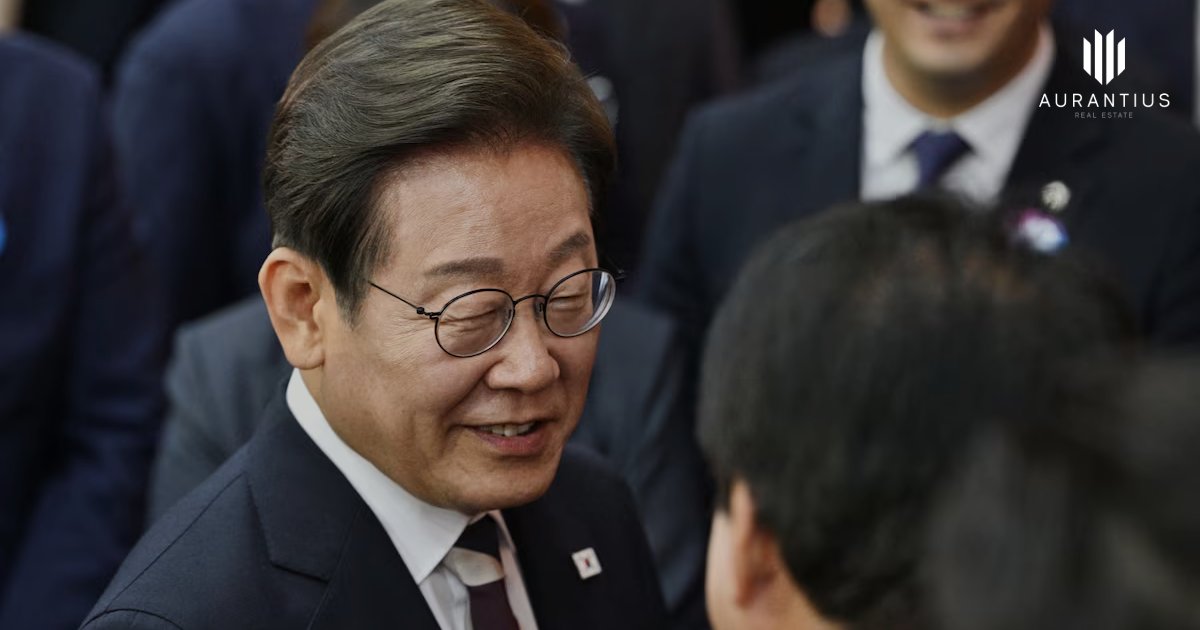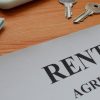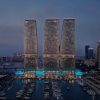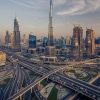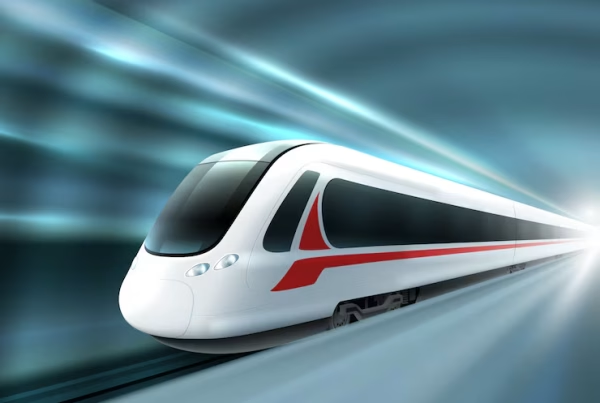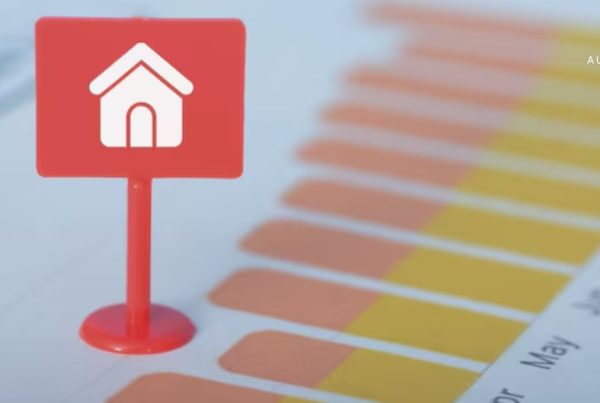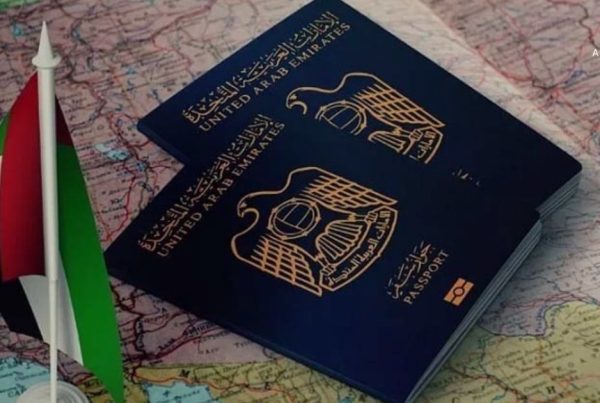South Korean President Lee Jae-myung’s UAE Visit: What It Means for Trade, Energy and Investment
South Korean President Lee Jae-myung’s state visit to the UAE marks one of the most strategically significant diplomatic engagements for both countries in 2025. Elected in June this year, President Lee has made economic diplomacy and technology partnerships core pillars of his foreign policy, and the UAE is his first stop on a wider Middle East and Africa tourAs he lands in Abu Dhabi to a military jet escort and full ceremonial honours, investors are watching closely for signals on trade, energy, defence and technology cooperation – all of which have direct implications for capital flows and long-term demand across the UAE’s real estate market.
A High-Profile State Visit That Underscores a Special Strategic Partnership
President Lee arrived in Abu Dhabi on November 17 on a formal state visit, with his aircraft escorted by a formation of military jets as it entered UAE airspace – a symbolic gesture underscoring the depth of the bilateral relationship. He was received at the Presidential Flight by senior UAE officials, including Khaldoon Khalifa Al Mubarak and ministers accompanying the honorary mission. His programme has included a visit to Wahat Al Karama, where he reviewed a guard of honour, laid a wreath and signed the guestbook in tribute to the UAE’s fallen service members
The UAE and the Republic of Korea elevated their ties to a “strategic partnership” in 2009, further upgraded to a “special strategic partnership” on the back of major cooperation around the Barakah Nuclear Energy Plant. Barakah, built by a Korean-led consortium, has become a flagship for joint high-technology, high-capex projects. Against this backdrop, President Lee’s meetings with UAE President Sheikh Mohamed bin Zayed Al Nahyan are expected to focus on expanding cooperation in defence industries, advanced technologies and energy, while also deepening the Comprehensive Economic Partnership framework between the two countries.
Energy, AI and Advanced Industries: Drivers Behind Future Capital Flows
Energy cooperation remains the centrepiece of UAE–Korea ties. Barakah, the first commercial nuclear power plant in the Arab world, now supplies around a quarter of the UAE’s electricity needs and is seen by both sides as a platform for new growth engines, including artificial intelligence, advanced manufacturing and data-centre expansion. Building on this, Emirates Nuclear Energy Company (ENEC) and Korean partners such as Hyundai Engineering & Construction have signed global expansion agreements to export their joint nuclear expertise to international markets, positioning the UAE–Korea axis as a credible global player in clean baseload power
For investors, this deepening collaboration signals continued investment into infrastructure, industrial capacity and high-tech sectors within the UAE. As AI and data-heavy industries scale up, demand for power, logistics and specialised commercial space in hubs such as Dubai South, Business Bay and Downtown Dubai is likely to strengthen over the medium term. The presence of Korean conglomerates across electronics, shipbuilding, automotive and defence creates a diversified pipeline of potential corporate occupiers and investors looking for regional headquarters, R&D campuses and long-stay executive housing.
Beyond energy, President Lee’s agenda in Abu Dhabi explicitly highlights collaboration in AI, defence capabilities and cultural exchange. These pillars dovetail with the UAE’s own strategy to become a global hub for advanced industries and creative economies. For real estate stakeholders, this means a more sophisticated tenant mix, from defence-tech joint ventures to AI labs, and a continuing need for premium residential and mixed-use schemes in locations like Dubai Marina, where international executives and their families typically base themselves.
UAE as “Base Camp” for Korean Expansion – and the Real Estate Angle
In a meeting with the Korean community in the UAE, President Lee described the country as a potential “base camp” for South Korea’s economic foothold across the Middle East, Europe and Africa.This positioning is strategically important. If Korean companies increasingly use the UAE as their regional launchpad, the implications extend well beyond trade figures. They translate into sustained demand for high-quality offices, logistics assets and residential stock across key Dubai sub-markets.
Master-planned communities led by major developers such as Emaar and DAMAC are already central to housing multinational workforces in areas like Dubai Hills Estate and MBR City. As bilateral projects scale up, a rising number of Korean engineers, project managers, financiers and entrepreneurs can be expected to enter or rotate through the UAE market. This trend supports stable absorption in mid to high-end apartments and townhouses, as well as Grade A rental products close to major business corridors.
On the commercial side, deeper defence and technology cooperation could create new demand clusters in business districts and free zones where Korean firms co-locate with regional partners, legal advisors and financial institutions. For investors, this amplifies the case for income-generating assets in well-connected locations, while also reinforcing the long-term story for capital appreciation in select waterfront and urban communities.
Strategic Diplomacy Converging with Real Asset Opportunities
President Lee’s state visit to the UAE is more than a ceremonial event; it is a signal of intent that the two countries aim to unlock the next phase of their “special strategic partnership” across energy, technology, defence and trade. From Barakah’s role in powering AI-driven growth to expanding CEPA-linked cooperation in 11 strategic sectors, policy alignment is increasingly translating into concrete investment flows and industrial projects on the ground.
For global and regional investors, the visit confirms the UAE’s role as a preferred platform for Korean capital and expertise, and vice versa. As new joint ventures, project pipelines and corporate mandates materialise, they will inevitably map onto demand for residential, commercial and logistics real estate in Dubai’s most globally integrated communities. Monitoring these diplomatic and economic signals is therefore essential for anyone calibrating a long-term real estate strategy in the emirate.
If you are looking to align your portfolio with these evolving UAE–Korea dynamics and explore opportunities in prime and emerging districts across the city, Aurantius Real Estate provides data-driven advisory and curated access to residential and investment-grade properties tailored to international investors and corporate occupiers.

